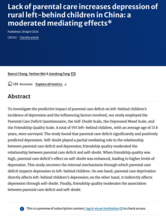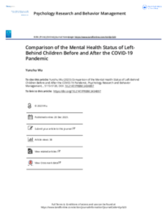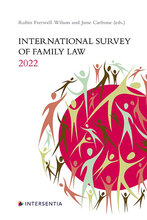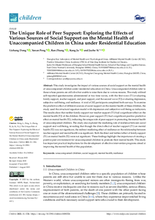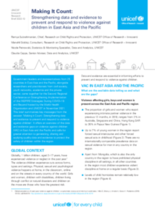Displaying 11 - 20 of 323
A South Korean commission found evidence that women were pressured into giving away their infants for foreign adoptions after giving birth at government-funded facilities where thousands of people were confined and enslaved from the 1960s to the 1980s.
The Chinese government is ending its intercountry adoption program, and the U.S. is seeking clarification on how the decision will affect hundreds of American families with pending applications.
This 90-minute session offers a unique opportunity to hear directly from the leaders of 6 pivotal organizations representing countries in Far-East Asia that have developed cutting edge approaches to child protection systems.
This study uncovers the internal mechanisms through which parental care deficit impacts depression in left-behind children in China.
To investigate and discuss the mental health status of left-behind children in Anhui Province before and after the COVID-19 pandemic and analyze its influencing factors.
This research is part of a wider project commissioned by the Hong Kong Committee on Children’s Rights (HKCCR), a non-governmental organisation originally formed in 1992 to promote, advance and ensure the rights of the child in Hong Kong. The aim of the wider project was to establish an independent baseline study of the implementation of Article 12 across all relevant sectors in Hong Kong, from constitutional and high-level policy-making to health and education to matters of leisure, culture and built environment, amongst others.
This study investigates the impact of various sources of social support on the mental health of unaccompanied children under residential education in China. Unaccompanied children refer to those whose parents are still alive but unable to raise them due to various reasons.
Adoptees sent to Europe and the US say they were wrongly removed from their families as government in Seoul actively promoted adoption.
The Task Force on Foster Care of the Transforming Children's Care Global Collaborative Platform held the fifth webinar in the spotlight series on Foster Care Practice on 15 September 2022. The webinar explored participation in foster care with particular focus on individual decision making for children and young people. We heard from people with lived experience of foster care in different contexts, including Uganda, Ireland and Argentina.
This brief provides an overview of the data and evidence gaps on violence against children in East Asia and the Pacific. It calls for greater attention to generating, sharing and applying quality data and evidence to protect the safety and rights of children within the region.

